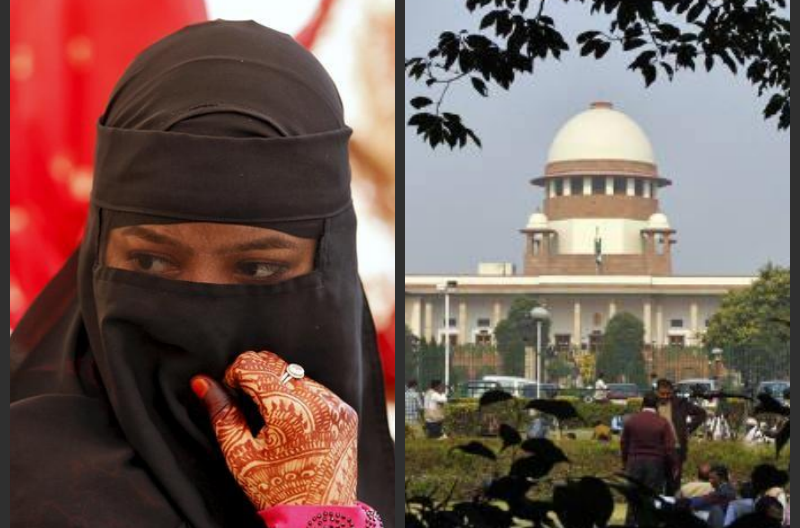
The Centre has stated that despite the ruling of the Supreme Court declaring the practice of Triple Talaq unconstitutional, reports show that this practice of divorce continues to exist. The Centre stated this in its affidavit filed in response to the petitions challenging the Muslim Women (Protection of Rights on Marriage) Act 2019.
The Centre further informed the Supreme Court that as the Shayara Bano case judgement hasn’t led to a decrease in the instances of triple talaq, there was a need of intervention by the state governments to help victims of triple talaqs.
The Centre argues that in order to prevent the practice of triple talaq in the country, there was a need of immediate action. The Centre informed the Supreme Court that the Muslim Women Act 2019 was introduced to protect the rights of married Muslim women being divorced by way of triple talaq by criminalizing the Act with imprisonment upto 3 years.
Although the All India Muslim Personal Board in the Shayara Bano Case had agreed to prescribe guidelines to control the practice of Triple Talaq, the practice is still rampant in the country. The Supreme Court declared unconstitutional the ‘talaq-e-biddat’ or any other similar form of talaq having the effect of instantaneous and irrevocable divorce pronounced by a Muslim husband in its judgment dated August 22, 2017 in Shayara Bano v. Union of India & Ors., (2017)9 SCC 1.
According to this ruling, the Central government passed the triple talaq law- Muslim Women (Protection of Rights on Marriage) Act 2019 on July 31, 2019, criminalizing the pronouncement of divorce in such a manner and prescribing a punishment of up to 3 years imprisonment for the same.




